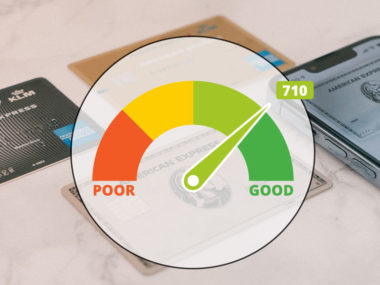
If you are looking for ways to improve your credit score, you may be wondering if a pay-for-delete service is your best option, how it works, and when you should decide to ask for this option.
Pay-for-delete might work if you know when to ask for it. You may be able to settle paying off your bad credit for as little as $250.
Table of Contents
What Is a Pay-for-Delete Service?
Pay for delete is when you come to terms with a debt collector. It starts with a letter from you saying that you will agree to pay a certain amount of money to the collector. In return, they will delete or remove the collections account from your credit report.
You may need to ask a debt collection agency to help you with this; when they reach out to you first, they’re looking for you to pay the entire amount owed. Your pay-for-delete request may not work because credit bureaus have to show marks on your account for at least seven years.
Effect Pay-for-Delete Service Can Have on Your Credit Score
Will pay-for-delete service increase your credit score? Well, firstly, any kind of negative mark makes your credit score go down. When you qualify for the option of a pay-for-delete service, it will help boost your credit score.
However, the boost may not be as much as you think. The increase to your credit score will depend on the amount you owe to the collections agency, as well as the other details on your credit report. You will have to focus on moving up your score yourself by paying off other owed debts.
Find out more ways to improve your credit score. Make a plan to pay down existing debt and stick with a solid budget. There are straightforward ways to get a handle on the debts you owe and, in return, focusing on this will ensure your credit goes up. Pay-for-delete services should be your last option.
How to Request Pay-for-Delete
When a collection agency has bought your debt, you can send a letter asking to pay for the deletion of the account from your credit report. You will need to send a formal letter stating who you are, what you can afford to pay, and your terms.
If they agree, they will send a letter back. However, they also may want to negotiate with you. Here is how you find out who you owe, how to ask for a pay-for-delete service, and a sample of what information you need to start your letter.
Find the Credit Agency
There is a chance that over the last several months, your debt has been bought and sold among multiple companies. Before writing a letter, you need to be sure of who you are writing the letter to. On your credit report, there will be the name of the agency that owns your debt. That is who you will address the letter to.
Validate the Debt
Before agreeing to pay the debt or a part of the debt, you need to ensure no mistakes are on the report. If there are mistakes, the credit bureaus have to correct the report before negotiations.
Furthermore, the collections agency has to be able to validate that the debt is truly yours. Ask them to validate this before negotiating a price. This begins the debt verification process.
The collections agency will need to verify the amount of debt you owe and who the creditor is.
Upon their verification, they’ll send you a note containing this information as well as any other information about your debt that you’re legally allowed to request, such as the name and address of the current creditor if different from the original creditor. All collections agencies should be able to provide this information to you without hassle.
Keep in mind that, throughout this verification process, the collections agency cannot legally contact you about collecting your debt until this debt verification is provided.
Pay-for-Delete Sample Letter
Once you have found the agency and you have validated the debt is legitimate, it is time for you to write a pay-for-delete letter. This letter needs to include your first and last name, address, city, state, zip code, as well as the collector’s name, city, state, zip code, and the date you’re writing.
You will need to state what credit report entry you are negotiating and on what date it was released. Then you will need to state this letter is not a promise to pay the debt but to negotiate the price of the debt. After that is complete, you will need to note how much you can pay and when you can pay it.
Benefits of Paying Off Debt
Paying off debt is one of the best things you can do in your life. It will make things a lot easier in the future. You will be able to get a better mortgage, use a new credit card, and reduce bills. It allows you to have a sense of financial security, freedom from debt, and you may be able to spend your money on other things later on without acquiring more debt.
Why the Pay-for-Delete Service May Not Work
Pay for delete doesn’t always work, and it may just end up costing you money. Some collection agencies may accept your funds without following through on any adjustments they told you they’d make, and pay-for-delete letters hold very little weight in court, so a legal resolution is a very risky shot in the dark.
Even if you are successful in your pay-for-delete request, the credit bureau itself may refuse to delete the collection entry, and the collection agency is not legally allowed to make the derogatory entry go away. With pay for delete, all you should realistically hope for is a paid-off collection, not a deleted collection entry.
These companies want you to pay them money, even though you may still be under obligation to pay back the debt. Pay for delete won’t harm your credit, but it also may not help it.
The truth is that you can pay off your debt and that it can boost your credit score, but the negative marks remain there for seven years. If you maintain good credit after paying it all off, the mark will come off in seven years.
There is also a chance that the collection agency will reject your letter. Unfortunately, they do not have to agree to your terms, which is also why this may not work. If this happens, you should pay the settlement, but there is also a chance that a different collections agency will buy your debt. You can try to request a pay-for-delete service with the new agency.
Alternative Ways to Pay Off Debt
The best ways to pay off debt include making a payment plan, paying off debt in lump sums, or settling for what you owe instead of using a pay-for-delete option. This will slowly improve your credit score, and your report will still have a bad mark for seven years. Paying off debt is not easy, and it is a slow process but well worth it.
Image Source: https://depositphotos.com/





